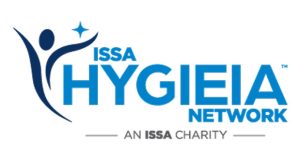The laundry industry is in desperate straits. Seventy-five per cent of it is on its knees, because its work has dried up. That’s the 75% that used to look after the hospitality, sports, leisure and similar markets. The other 25% is also on its knees – not through lack of work, but because it’s working flat out, with demand ever growing. That’s the part looking after the NHS and other key industries.
David Stevens, CEO of the Textile Services Association (TSA) said: “Both parts of our industry are desperate. On the one hand, the hundreds of laundries looking after the hospitality and similar markets have seen their work disappear, literally to zero. However, because they are not considered as part of the hospitality industry, they can’t get the support they will need to survive the crisis.
“Meanwhile the laundries working for the NHS and other essential services such as food producers, pharmaceutical manufacturers and laboratories are being required to ramp up their operations.”
Rona Tait owns TDS Commercial Ltd, an independent laundry in London that employs 25 people serving customers in the hospitality and sports organisations. It’s been running successfully for 14 years. “In the space of one week 100% of our clients stopped trading,” Tait said. “It was such a hard decision for us to close. Laundries are used to carrying on, regardless of the obstacles. Stopping work and just locking up is very unnatural and painful.”
Stevens commented: “I know of laundries supplying the NHS and care services who are dealing with a massive increase in demand from certain customers. Some are saying that, while the amount of bed linen to be cleaned has actually dipped, as hospitals repurpose wards in preparation for the predicted peak, at the same time they have seen a substantial increase in scrub suit usage, up 100%.”
It’s a hugely different story at TDS, where all staff have been furloughed. Tait added: “I’m in touch with them all two or three times a week, trying to allay their fears. I’m doing my best to reassure them but I do need finance to carry on supporting the company through this time. I have applied for the £25,000 grant through Hounslow council but I don’t think TDS will be considered a hospitality company. I had a brief chat with my business bank manger regarding the government business interruption loan scheme, I’m not confident the bank won’t ask for personal guarantees.”
What makes it worse is the seasonal aspect of their work. “For our industry, this time of year is when the workload should be increasing into the summer season. January and February are months that we might only just break even.
“I really don’t know if we can survive. We are a very strong company with a great team and clients that really value our service. If I can get the grant and a loan we should be ok. But neither looks promising.”
It’s estimated that the textile services industry as a whole contributes a total of £1.3 billion in GVA (gross value added) to the UK economy, supporting around 28,000 FTE jobs (Hatch Regeneris, research, 2020).
“Laundry workers do a tough job and don’t get the recognition they deserve,” said Stevens. “We’re a Cinderella industry, most people forget that so much of business relies on us.
“Laundries that are supplying the NHS will almost certainly need help to get through the peak of the crisis. Meanwhile, if the government doesn’t support the laundries that service the hospitality industries, then when the recovery comes restaurants, hotels and leisure centres will either not be able to function or they will be left with almost insurmountable hygiene and cleaning challenges.”





